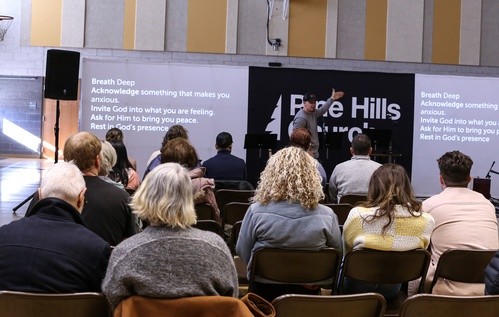Our community does things just a little bit different. We gather all together at a local school and we gather in homes. Both environments matter as we collectively explore, practice, and live the way of Jesus in Bend. Without overloading your schedule.
All Together

We gather all together on the 1st and 3rd Sundays at at Silver Rail Elementary to connect with God and the larger Pine Hills Community.
Houses

We gather on the 2nd and 4th Sundays in Homes around tables to share life, collaboratively learn about Jesus, and eat together.
Meet-ups

We meet-up monthly at local spots around Bend to enjoy life together and our beautiful city.
Church Gathering Schedule:
All together at Silver Rail Elementary: 1st and 3rd Sundays
(61530 SE Stone Creek Ln Bend, OR 97702)
House Gatherings: 2nd and 4th Sundays
5th Sunday: Serve or Rest
(61530 SE Stone Creek Ln Bend, OR 97702)
House Gatherings: 2nd and 4th Sundays
5th Sunday: Serve or Rest
Upcoming Dates:
- 03/01-All Together Gathering at Silver Rail Elementary (61530 SE Stone Creek Ln Bend, OR 97702
- 03/08-Home Gathering
- 03/22-All Together Gathering at Silver Rail Elementary
- 03/29-Rest Sunday No Gathering (Sabbath)
- 04/05-Easter at Silver Rail Elementary
Most recent teaching at Pine Hills Church:

Pine Hills Church Planted in Bend in 2023
Pine Hills Church desires to be a community where people feel comfortable in exploring who Jesus is, what He was like, and what that might mean for their lives. We want to connect with people who don't yet know Jesus, people who have tried church but never engaged well with Jesus’ way of doing life, and we want to help people connect their vocation with God's greater purposes. We want Bend, Oregon to be just a bit better because we collectively strive to love to the city well through our gifts, talents, and passions.

